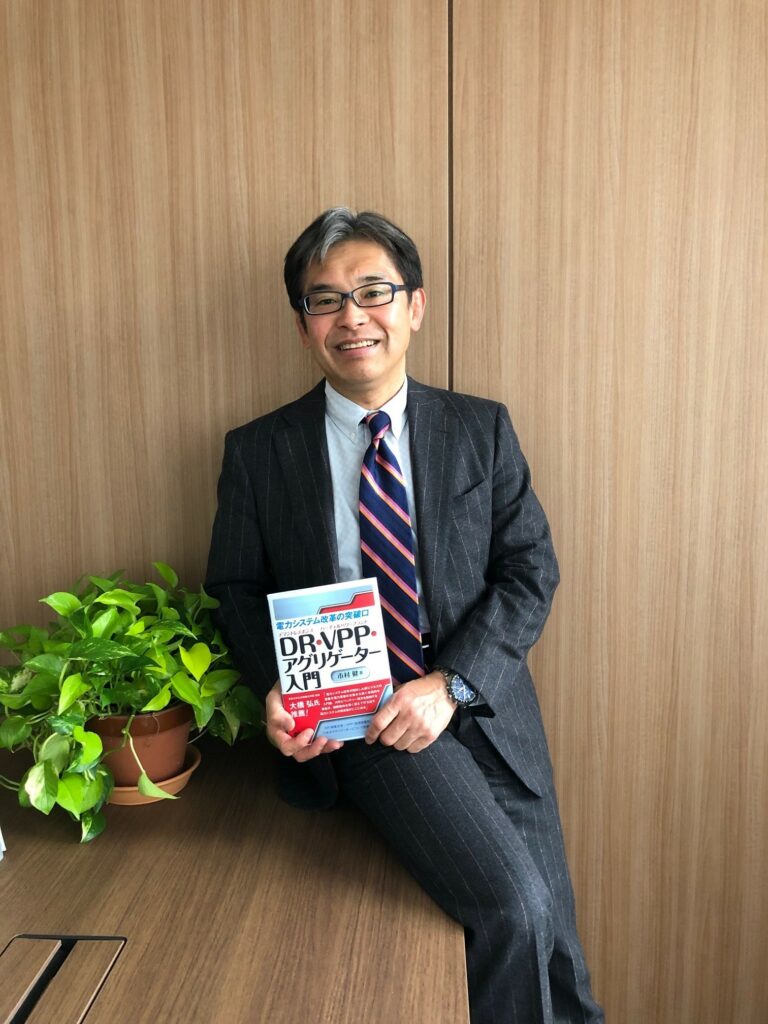Takeshi ICHIMURA, CEO of Energy Pool Japan recently signed the first book on Demand Response (DR) in Japan called “Introduction to DR / VPP / aggregator”. Through 4 chapters, this book traces the history of key evolutions in the Japanese power system. It first focuses on Electricity history in Japan since 1878 and then on the paradigm shift to distributed energy resources. Chapter 3 details the emergence of load adjustment contract and the evolution to Demand Response. Finally, in chapter 4 we learn about Virtual Power Plant (VPP) and how it contributes to make power systems enter a new era.
We are pleased to ask 3 questions to Takeshi ICHIMURA to get further insights about his book and Demand Response development in Japan.
1. Please tell us a bit about Demand Response in Japan: when did it start, what are the main challenges and which market evolutions do you see in the coming years?
The origin of DR in Japan started from 1952, so called LAC, load adjustment contract, by TEPCO. Due to severe scarcity of electricity in those days, TEPCO launched this program as time buying policy. As time goes, LAC remains as a de facto scheme of tariff discount. However, everything turned over by Great earthquake in 2011. Japan Energy policy based on nuclear energy was totally obliged to change. The main challenges were prejudice and bias among stakeholders for bringing evolution to LAC even though digitalization was making it possible, but it’s now being gradually dispersed, thanks to TEPCO alliance. Potentiality utilizing DR has now evolved and unique mechanism will be launched in Japan soon.
2. What motivated you in signing this first book? Do you envisage other publications in the coming years? on which topics?
It was an honor for me to be assigned for this opportunity because this is the timing consolidating my 35 years career in this sector, from Japan large enterprise to French start-up, from nuclear management to DSR/DER.
Regarding other publications, energy security is now top priority for Japan regulator as well as stakeholders including us, which is how to make rationale and acceptable transition from nuclear to renewables without any turbulences under the circumstances of no inter-continental grid, tons of natural disaster plus no natural resources.
This may be a topic if occasion being offered.
3. Could you please elaborate a bit on Energy Pool Japan, EPJ team already accomplished a lot in only a few years?
I am proud of Japan team because of three axes.
One is leading strategy synchronized with government policy and make EPJ as top-runner ‘flexibility service provider.’
Second is, many thanks to France team, for reliable operation year by year under on-going new services launch led by strategy.
Third is diversity, ‘bon marriage’ with Japan and France, junior and senior, men and women (gender equality) under full WFH status.
But, no limitation, we will accomplish more.
Please contact us if you’d like to have additional information about this publication or about Energy Pool.
Further details about Energy Pool Japan activities are available here.

